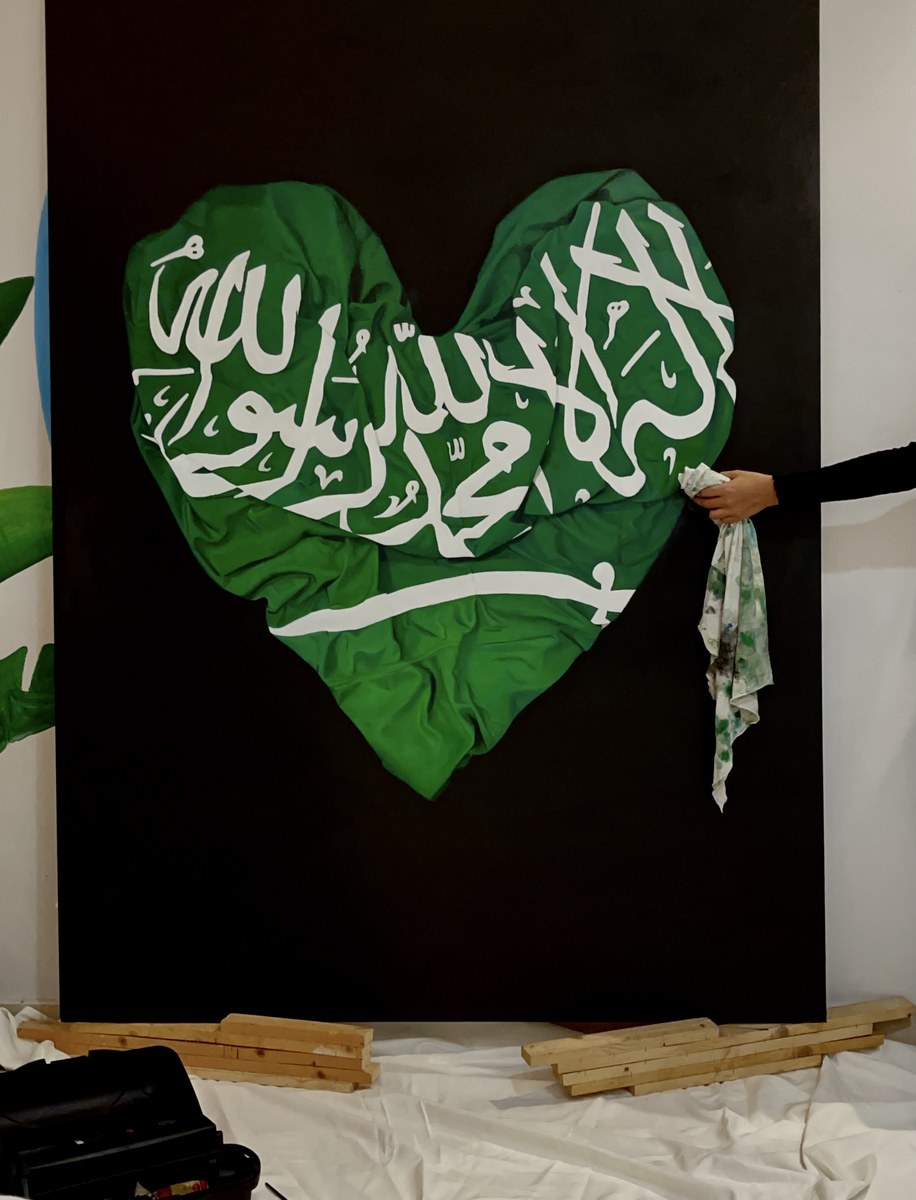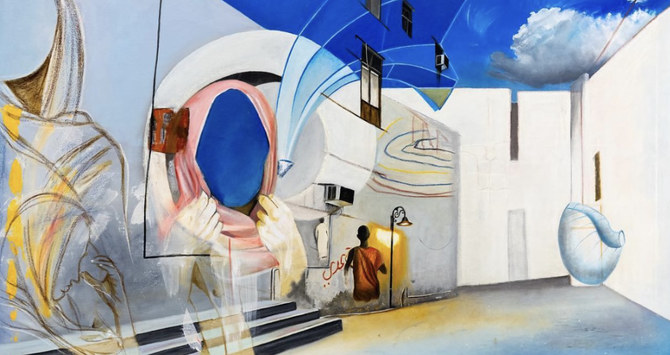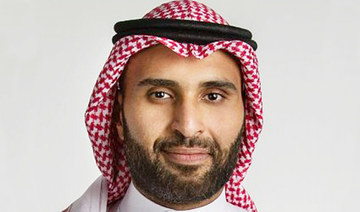DUBAI: Nujood Al-Otaibi began losing her hearing at around the age of five. In Taif, the area in Saudi Arabia’s Makkah region where she was born, her affliction was initially mistaken for a common fever. But as the years passed, her deafness became progressively worse and, by the time she finished higher education, she was almost entirely dependent on hearing aids.
Al-Otaibi ascribes the lack of public awareness about hearing disabilities in the village from where her mother came to its remote location. “Over the years, I learned how to read lips, which I find is the conversation of the soul,” Al-Otaibi, who turned 32 last year, told Arab News from her home in Jeddah, the city where she was raised and where she now combines her work as a teaching assistant with her passion for art and design.
Living with disability in the Arab world is a challenge for many reasons despite increasing recognition by governments of the rights of persons with disabilities. Social stigma is believed to be one reason why only 2 percent of the Arab population is reported to be living with disability even though the corresponding figure for the world population is 6 percent.
Social stigma, in turn, can leave persons with disabilities disempowered and excluded from public life. Even in Saudi Arabia, where about 7.1 percent of the population have some form of difficulty, according to a survey conducted by the General Authority for Statistics, provision of equal opportunities in education and employment was not standard practice until fairly recently.
Attitudes are changing, however, in part thanks to the Kingdom’s Vision 2030 reform plan to uphold the rights of persons with disability and empower them to participate in shaping the country’s economic and social future.
It is also changing thanks to the creative renaissance sweeping the Kingdom, which has given social issues such as disability a new medium for public expression. For Al-Otaibi, this climate of artistic freedom has allowed her to open up about her own struggles.

For Nujood Al-Otaibi, this climate of artistic freedom has allowed her to open up about her own struggles. (Supplied)
“It’s really hard in our society. People think you can’t do anything and that is shameful,” she said, referring to the condition in which persons with disabilities often find themselves in.
Unbowed by these attitudes, Al-Otaibi cites the example of Ludwig van Beethoven, the early 19th century German composer who, despite suffering from profound deafness in his later years, remains one of the most admired composers in the history of Western music.
“I don’t want to suffer. I want to be inspired by someone like Beethoven who had hearing disabilities yet was one of the best artists of all time. This is how I want to inspire people — I want to be the best and this is not going to stop me.”
Al-Otaibi’s artistic skills and abilities were nurtured early on. “My father is an artist and I remember seeing him painting from a very young age,” she said.
“My mother said I was three when I started drawing people and she remembered me drawing my aunt’s hair and uncle’s belly. No one knew I would become an artist one day, but my father was the only one who encouraged me to continue painting.”
She soon found inspiration in the hyperrealist movement, a genre of painting and sculpture which, on the surface, resembles a high-resolution photograph, but on closer inspection captures a deeper emotional narrative.
One of Al-Otaibi’s most recent works, “The Heart of the Kingdom,” is an oil painting depicting the flag of Saudi Arabia scrunched into the shape of a heart and set against a black background. The brushwork on the canvas is so precise that the green fabric almost seems real.
At the age of 16, Al-Otaibi completed her first oil painting titled “Peace,” which combined the flags of three Middle East countries. Another of her paintings depicted the 9/11 attacks on the US. Both of them proved problematic when it came to getting them publicly displayed. “It was really sad,” she said. “People back then had no idea about the meaning of art. Art was very limited in Saudi Arabia in the past.”
These early setbacks were not enough to stifle or crush her creativity, however. After completing school in Jeddah, Al-Otaibi moved to the US, where she spent eight years in Wisconsin studying art and design. It was here she explored her love of hyperrealism and began branching out into other styles of painting.

In "Heart of the Kingdom," the brushwork on the canvas is so precise that the green fabric almost seems real. (Supplied)
After a stint interning in the US, she returned to Saudi Arabia to work at the American International School of Jeddah. As her hearing loss became progressively worse, her desire to help others with disabilities grew.
“I wanted to be in a community where I could help children with disabilities like myself, and to help them reach their academic goals,” she said. “So, I decided to do art and help children believe in themselves, especially those with disabilities, because it’s really hard and people don’t shed light on it, especially in the Kingdom.”
As a teaching assistant specializing in assisted learning, Al-Otaibi helps her students identify their goals and pursue their dreams. “This is what I struggled with,” she said. “This is what’s going to keep you moving in life and I feel like it’s my purpose.”
Article 26 of the Basic Law of Saudi Arabia, the most important legal document in the Kingdom, encourages the elimination of prejudice and discrimination on any basis, including disability. The rights of persons with disabilities are covered as part of a regulatory framework encompassing the systems of medical care, social services, labor, criminal procedure, legal commencements, social security, retirement and communication.
There are also a number of governmental and civil society institutions which undertake the mission of safeguarding the rights of persons with disabilities, including government entities and non-profit organizations such as the National Society for Human Rights and the King Salman Center for Disability Research.
In Saudi Arabia’s increasingly tolerant and inclusive atmosphere, Al-Otaibi has seen her artistic career blossom. She crossed a significant personal milestone when Jeddah’s Athr Gallery displayed one of her paintings — a self-reflection influenced by her hearing loss.
“I never expected that one day I would showcase my artwork representing my disability,” she said.
“I wanted to deliver my idea by representing myself with no face and showing my ear in different objects,” she said. “It was inspired by the artist Rene Magritte — I love his style and work and the way he expresses his feelings.”
Like the Belgian surrealist’s most famous painting, “The Son of Man,” in which a hovering green apple largely obscures a man’s face, Al-Otaibi’s work depicts a strange, geometric dream world.
Near the center of the canvas, a hollow pink headscarf frames a deep blue void in place of a face, surrounded by walls, windows, and ghostly figures with their backs turned. To the right hangs a disembodied diagram of the inner ear.
The piece is a deviation from her usual attachment to hyperrealism — but is still laden with the same cutting social commentary, in this instance, perhaps, a critique of the social isolation of living with a disability.
Although Al-Otaibi is now looking forward to her first solo exhibition in Riyadh in 2021, details of which will soon be announced on her Instagram page, she says her greatest joy is seeing her students draw inspiration from her work, which shows that disabilities should not be viewed as a barrier to success.
“They know about my disability and they are curious about my hearing aid and they understand that some people may have such issues and that it’s okay,” she said.
“I’m really happy that the younger generation will no longer see this as something new or weird.”
Twitter: @CalineMalek














